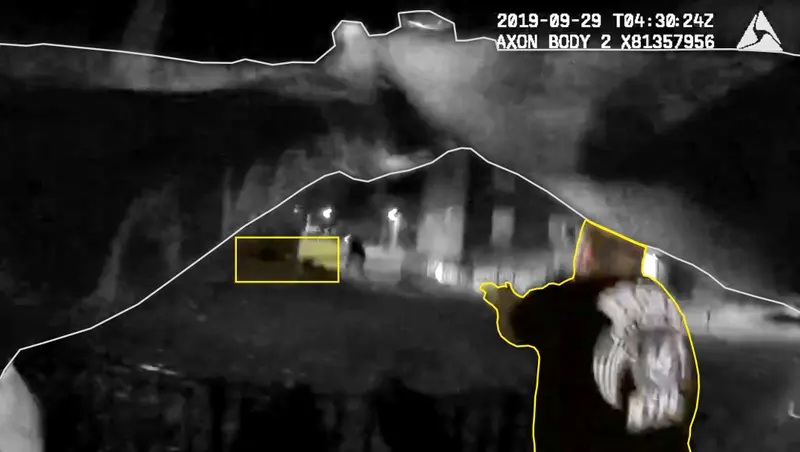In March 2021, I received a tip to look into the police killing of a Bronx man who was shot dead in 2017 while in the throes of a mental health crisis. The source suggested I request the investigative files from the NYPD’s Force Investigation Division, the internal unit that spent two years probing the case.
At the time, I was in the midst of reporting for a book on the NYPD’s secretive disciplinary system, in which FID plays an integral role. So I filed a records request under New York’s Freedom of Information Law, but it seemed to go nowhere. Every few months, the NYPD requested an extension while deciding how to respond. Roughly nine months passed with no records. I was not shocked by these delays. When former New York City Mayor Bill de Blasio conducted an audit that gave grades to the city’s agencies for their public record responsiveness, the NYPD received an F.
But then, on the last day of 2021, an email from the NYPD hit my inbox. The department had provided not just the investigative report on the Bronx man’s death, but the complete record of audio interviews with the officers involved in the case and their body-camera footage as well. This reporting got me interested in learning more about FID, which investigates every incident where an NYPD officer fires their weapon. I decided to file additional FOIL requests for the internal investigative files for a number of fatal shootings by the NYPD.
One case involved the police killing of a man named Kawaski Trawick, who was shot dead in his apartment while in the grips of a mental health crisis. Another involved the deaths of Officer Brian Mulkeen and a man named Antonio Williams in a public housing complex. After about a year, the NYPD sent me hundreds of pages from the final FID reports for both cases. But unlike the first batch I had received, this one contained none of the body-camera videos or audio of the FID’s officer interviews. So I appealed and, to my surprise, won.
The NYPD soon sent me all the video and audio related to the Trawick investigation. Along with the files, a sergeant in the NYPD’s Records Bureau included a note explaining that the omission appeared to have been an administrative “oversight.” The records system, he wrote, was “glitchy,” and the investigator had simply “just missed the upload of the case file.”
The records enabled ProPublica’s Eric Umansky and me to publish a revelatory story that exposed how the FID failed to probe key moments in the Trawick incident, including when one officer tried to stop his partner from shooting the man in crisis.
From a media perspective, the episode illustrated a triumph of New York’s public records laws. Or so I thought.
Two weeks after publication, I got another letter from the NYPD, this time denying much of the outstanding part of my records request in the Mulkeen-Williams case, in which police killed a suspect as well as a fellow officer. After releasing the full audio and video footage for two prior cases, the NYPD now claimed that providing the same types of files in this instance would “constitute an unwarranted invasion of personal privacy” for its officers. The letter referred me to the edited video compilation the department had publicly posted to YouTube after the shootings. If I wanted to contest their records denial, I would have to file a lawsuit, the department said — a time-consuming and potentially costly proposition.
In spite of the setback, I kept reporting and soon spoke to David Rankin, an attorney for the Williams family who offered to share the records that he had obtained from the NYPD through his own FOIL request. I was stunned: The department had provided him with some of the exact records that I had been denied — most notably, the complete body-camera footage. Separately, Rankin gave me access to audio of FID’s interviews, which he had obtained from the city Law Department as part of ongoing litigation.
As with the Trawick case, the complete record allowed me to piece together a fuller — and ultimately, more damning — picture than the one the NYPD had presented publicly. Time and again, the records showed, FID investigators stopped short in their questioning of officers, even when the conduct at issue led to the death of a colleague. This type of accounting would not have been possible without the video footage of the shooting and the audio of FID’s interviews with the officers.
Of course, I can’t say whether that — or my prior coverage — played into the NYPD’s decision to withhold the records from me. Prior to publication, I asked the department why it denied my request while granting the attorney’s. The NYPD did not respond.
Mike Hayes is a freelance journalist and author of “The Secret Files: Bill De Blasio, The NYPD, and The Broken Promises of Police Reform.”


















